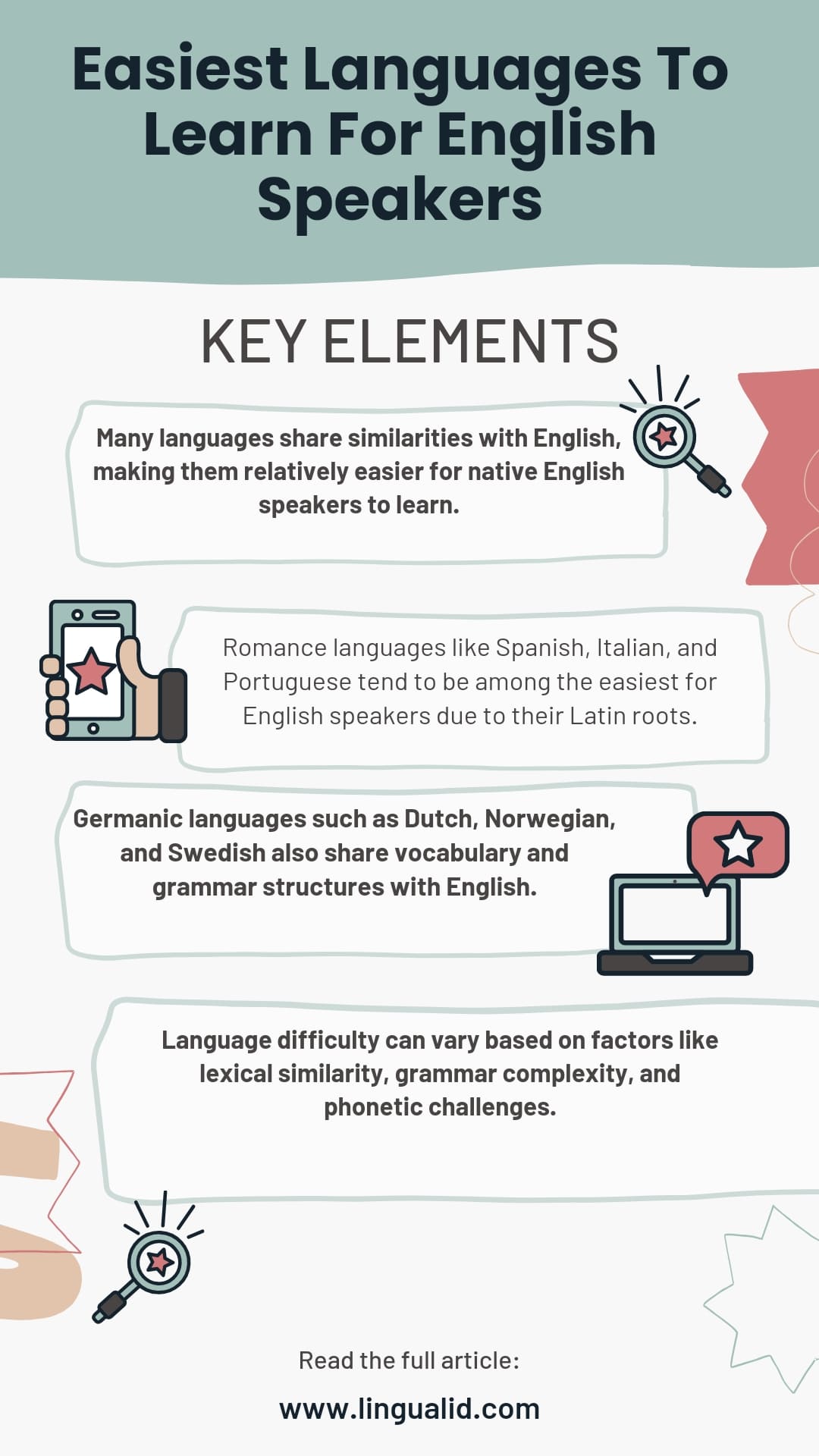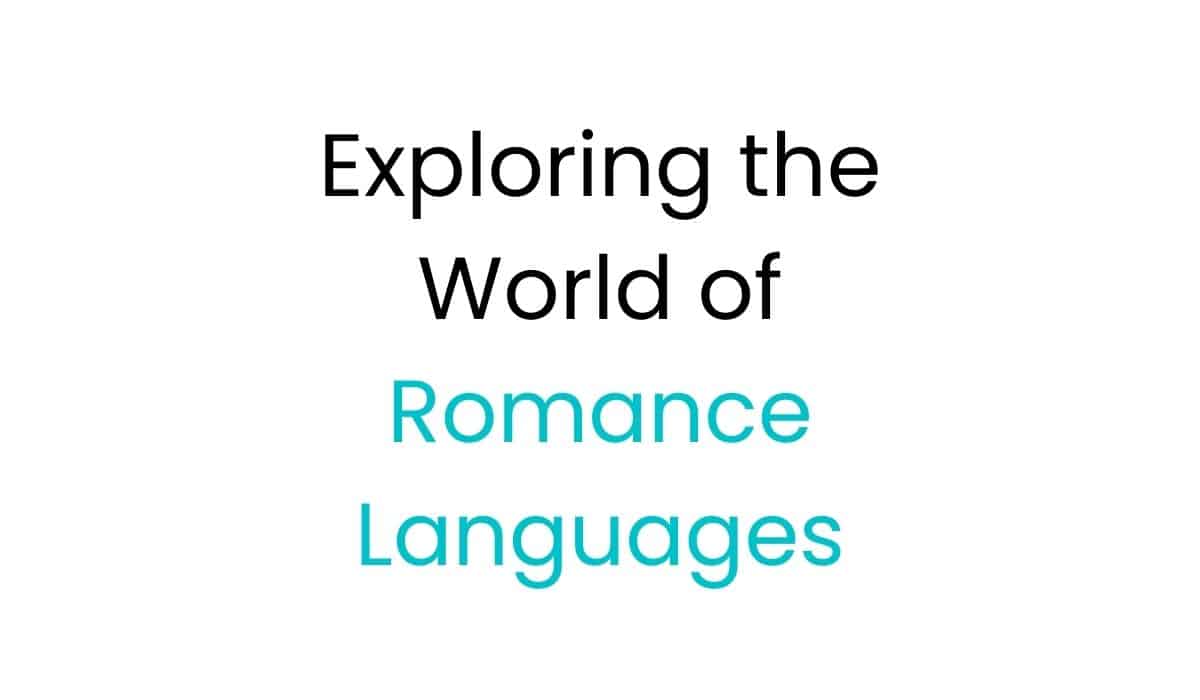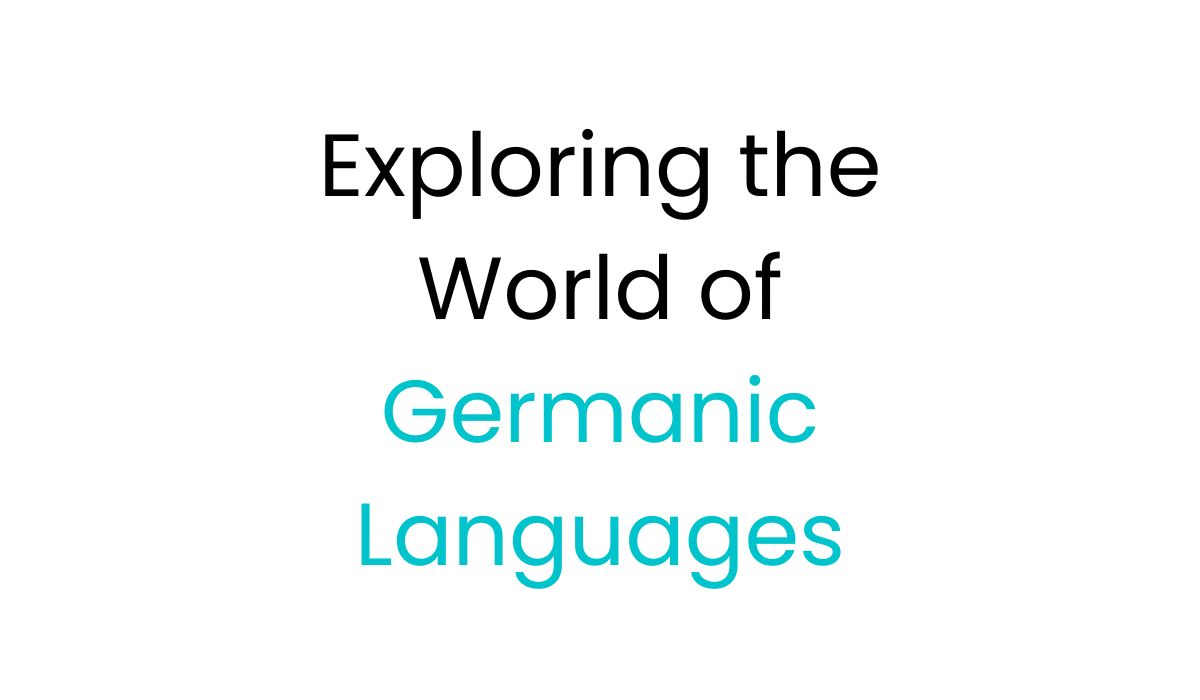Did you know 3.3 billion people speak more than one language? There are 7,151 known living languages, giving you lots of choices. English speakers have a big advantage because English comes from the Germanic languages and shares many things with the Romance languages. These languages still affect English’s vocabulary, grammar, structure, and sounds today.
Language experts say some languages are easier and quicker to learn if English is your first language. This is because they share similarities with English.
Key Takeaways
- Many languages share similarities with English, making them relatively easier for native English speakers to learn.
- Romance languages like Spanish, Italian, and Portuguese tend to be among the easiest for English speakers due to their Latin roots.
- Germanic languages such as Dutch, Norwegian, and Swedish also share vocabulary and grammar structures with English.
- Constructed languages like Esperanto are designed specifically for ease of learning.
- Language difficulty can vary based on factors like lexical similarity, grammar complexity, and phonetic challenges.
- Key Takeaways
- Connecting with Diverse Cultures and People
- Enhancing Career Opportunities
- Cognitive Benefits of Being Multilingual
- Lexical Similarity to English
- Language Family Relationship
- Grammatical Complexity
- Phonetic Challenges
- A West Germanic Language Derived from Dutch
- Simple Grammar and Phonetic Spelling
- Germanic Origins and Linguistic Similarities
- Consistent Grammar and Cognates
- Shared Vocabulary and Language Family
- Straightforward Grammar and Pronunciation
- Designed for Ease of Learning
- Logical Grammar and Vocabulary
- Cognates and Shared Linguistic Roots
- Varying Levels of Grammatical Complexity
- What are the advantages of learning a new language as an English speaker?
- What factors make a language easy or difficult for English speakers to learn?
- Why is Afrikaans considered the easiest language for English speakers to learn?
- How are the Scandinavian languages like Norwegian, Swedish, and Danish easy for English speakers?
- What makes Dutch and Frisian particularly approachable for native English speakers?
- Why is Romanian an easy language for English speakers to learn?
- How is the constructed language Esperanto designed for ease of learning?
- Which Romance languages are the easiest for English speakers to learn?
The Advantages of Learning a New Language
As an English speaker, learning a second language has many perks. It enriches your life and opens doors in your career. Let’s explore why adding a new language to your skills is a smart move.
Connecting with Diverse Cultures and People
Knowing another language lets you explore new worlds and cultures. You can form deeper connections with people from different backgrounds. This means better relationships and a deeper understanding of others.
Whether you’re chatting with locals on a trip or talking with family in another language, it’s rewarding. Being able to bridge language gaps can bring you closer to others.
Enhancing Career Opportunities
In today’s global job market, speaking multiple languages is a big plus. It makes you stand out and more valuable to employers. You can work with international clients and fit into diverse work settings.
This skill can boost your career and increase your earning potential. It’s a great way to get ahead in your field.
Cognitive Benefits of Being Multilingual
Learning a second language is good for your brain. It improves problem-solving, memory, and focus. Plus, it may help prevent age-related cognitive issues like Alzheimer’s disease.
Whether you want to explore new cultures, boost your career, or challenge yourself, learning a new language is rewarding. It opens up a world of benefits for English speakers. Discover why learning a second language as an English native is a smart choice for your growth.
Factors That Make a Language Easy or Difficult
Learning a new language can be easier or harder for English speakers. Some features make it simpler or more challenging. These include how similar the words and grammar are to English.
Lexical Similarity to English
How similar a language’s words are to English can help English speakers learn it faster. Languages like Dutch and Afrikaans are easier because they share roots with English. This means learners can use what they know about English to learn the new language quickly.
Language Family Relationship
Being in the same language family as English also matters. Languages like Dutch and Scandinavian tongues are easier because they’re related to English. They don’t require as much time or effort to learn as languages like Mandarin Chinese or Arabic.
Grammatical Complexity
The grammar of a language can also affect how hard it is to learn. Simple grammar, like in Afrikaans and Esperanto, makes learning easier. These languages have fewer verb tenses and grammatical rules. On the other hand, languages like Russian or Hungarian are harder because their grammar is more complex.
Phonetic Challenges
The sounds and structure of a language’s sounds can also make it easier or harder to learn. Languages with sounds similar to English are easier. But languages like Mandarin Chinese, with its tones, can be tougher for English speakers.
| Language | Native Speakers | Estimated Hours to Proficiency |
|---|---|---|
| Spanish | 480 million | 600 hours |
| Dutch | 24 million | 600 hours |
| German | 95 million | 900 hours |
| Italian | 69 million | 750 hours |
| Afrikaans | 7.2 million | 600 hours |
| Esperanto | 1,000-2,000 | 600 hours |
Related: Try our Language Learning Duration Estimator.
Afrikaans – The Easiest for English Speakers
Afrikaans might seem like an odd choice, but it’s actually the easiest language for native English speakers to learn. It comes from Dutch and has features that make it easy for Anglophones.
A West Germanic Language Derived from Dutch
Afrikaans and English share a common ancestor in the West Germanic language family. They have many similarities, like root words like “sun” and “field”.
Simple Grammar and Phonetic Spelling
Afrikaans is known for its simple grammar, making it the easiest language for English speakers to learn. It has only three tenses and no verb conjugation or pronouns. The spelling is also phonetic, helping English speakers with the pronunciation.
Its roots and grammar make Afrikaans easy to learn for native English speakers. It’s a great choice for English speakers wanting to learn another language.
“Afrikaans is ranked number one and earned a top spot in the FSI rankings as the easiest language for native English speakers to learn.”

The Scandinavian Languages: Norwegian, Swedish, and Danish
For English speakers, learning Norwegian, Swedish, and Danish is often easy. These languages are part of the North Germanic family and share a common heritage with English. This makes them great for those who speak English.
Germanic Origins and Linguistic Similarities
Norwegian, Swedish, and Danish come from the Germanic language family, just like English. This means English speakers will find many words that look and sound similar. The grammar and sentence patterns are also similar, making it easier to learn.
Consistent Grammar and Cognates
The grammar and pronunciation of these languages are easy for English speakers. Norwegian is especially easy, with simple grammar and lots of familiar words. Swedish and Danish are similar to English too, helping learners build a strong vocabulary quickly.
These languages are great for English speakers wanting to learn something new. Their Germanic roots, simple grammar, and many familiar words make them a great choice. They also open the door to the rich culture of the Nordic region.
Dutch and Frisian – English’s Closest Cousins
English might seem tough to learn, but many Germanic languages are similar to it. This makes them easy for English speakers to learn. Dutch and Frisian are two such languages, very close to English.
Shared Vocabulary and Language Family
Dutch is spoken by about 23 million people in the Netherlands, Belgium, and Suriname. It’s very close to English, both in vocabulary and grammar. Many Dutch words are almost the same as English words, making it easy for English speakers to understand.
Frisian is spoken by around 450,000 people in the northern Dutch province of Friesland. It’s part of the Anglo-Frisian group and is very similar to English. This makes it a great choice for English speakers to learn.
Straightforward Grammar and Pronunciation
Dutch and Frisian have simple grammar and pronunciation, which is great for English speakers. Dutch grammar is easy, with fewer cases and simpler sentences. Frisian has a spelling system that matches its pronunciation well, making it easier to learn.
In conclusion, Dutch and Frisian are great for English speakers looking to learn a new language. They are closely related to English and have easy grammar and pronunciation. This makes them perfect for expanding your language skills.
Easiest Languages To Learn For English Speakers
Romanian is a fascinating language that’s part of the Romance language family. It’s spoken by about 17.2 million people, mostly in Romania. English speakers find it interesting for learning a new language.
Why is Romanian easy and attractive for English speakers? It has many similarities with languages like Spanish, French, and Italian. This is because Romanian borrowed a lot from Latin, making up about 80% of its words. This makes it easier for English speakers to learn.
Also, Romanian words are pronounced as they are written. This makes learning the language simpler. English speakers can easily say most words without the trouble of multiple pronunciations found in other tongues.
- Lexical Borrowings: Romanian shares a substantial vocabulary with other Romance languages, thanks to its Latin roots.
- Phonetic Nature: Romanian is a highly phonetic language, making it easier for English speakers to pronounce words correctly.
- Grammatical Structure: The grammatical structure of Romanian closely resembles that of other Romance languages, providing a familiar foundation for English speakers.
There are about 22 to 26 million native Romanian speakers worldwide. This makes Romanian an exciting choice for English speakers looking to learn a new language. Its mix of Romance language similarities and Eastern European flair makes it both interesting and easy to start with.
Constructed Languages: Esperanto
Esperanto is a unique constructed language known for its simplicity and ease of learning. It was created by Polish ophthalmologist L.L. Zamenhof. He aimed to make a language that could connect people from different countries.
Designed for Ease of Learning
Esperanto is easy to learn because of its logical structure. It has only 16 grammar rules and a simple spelling system. This makes it easy to learn for English speakers. Unlike English, Esperanto doesn’t have irregular verbs or complex rules.
Also, Esperanto’s words come from the Romance languages, like Spanish, French, or Italian. This makes it easier for those familiar with these languages. It also gives advantages for native English learners.
Logical Grammar and Vocabulary
Esperanto is simple in design. It uses only a few dozen prefixes and suffixes, unlike English’s many. Its five-vowel system and simple verb tenses make it straightforward and easy to learn.
Its vocabulary is based on Romance languages, making it familiar to English speakers. Yet, it still has its own unique character. This makes it a great choice for those wanting to learn a simple language.
“Esperanto is a language that can be learned in a very short time, with minimal effort, and used effectively for international communication.”
The Romance Languages: Spanish, Italian, and French
The Romance languages, like Spanish, Italian, and French, are easy for English speakers to learn. They share roots and are similar to English. This makes them great choices for English learners.
Cognates and Shared Linguistic Roots
Spanish, Italian, and French come from Latin and have many cognates with English. This means words are similar in spelling and origin. English speakers can use their vocabulary to learn these languages faster. The grammar of these languages is also closer to English than many others.
Varying Levels of Grammatical Complexity
These languages have different grammar levels. Spanish and Italian are easy, with simple grammar and clear pronunciation. French is a bit harder, with complex grammar and tricky pronunciation.
Spanish, Italian, and French are great for English speakers wanting to learn a new language. They use shared roots and similar words, making it easier to start. This helps learners connect with different cultures worldwide.
| Language | Number of Speakers | Complexity |
|---|---|---|
| Spanish | Approximately 500 million | Relatively simple grammar and phonetic pronunciation |
| Italian | Around 65 million | Straightforward grammar and phonetic spelling |
| French | Approximately 300 million | More complex grammar and nuanced pronunciation |
“Spanish is the easiest of the Romance languages for English speakers to learn, thanks to its phonetic spelling and relatively straightforward grammar.”
Conclusion
Learning a new language is both exciting and rewarding. It opens doors to different cultures, improves career chances, and boosts brain power. Some languages are easier for English speakers to pick up than others.
These easy languages share words, grammar, and sounds with English. They are the easiest languages for English speakers to learn.
Spanish, Dutch, and Esperanto are great choices. They use what you already know about language and are not too hard to learn. Knowing what makes a language hard can help English speakers choose the right one and succeed in learning it.
The most approachable foreign languages for anglophones mix what’s familiar with something new. This lets learners talk effectively and keep growing their language skills. By facing and overcoming language challenges, English speakers can grow personally and professionally. They connect more with people and cultures worldwide.
FAQ
What are the advantages of learning a new language as an English speaker?
Learning a new language opens up exciting new experiences. It helps you connect with different people and cultures. It can also boost your career and let you study or work abroad.
Being bilingual can improve your academic performance. It also helps you concentrate better and remember more.
What factors make a language easy or difficult for English speakers to learn?
Several factors affect how easy or hard a language is for English speakers. These include how similar the language is to English, its family ties, grammar, and sounds.
Why is Afrikaans considered the easiest language for English speakers to learn?
Afrikaans is easy for English speakers because it comes from the same West Germanic roots. It has simple grammar and sentence structures. It also doesn’t have complex verb forms or pronouns.
How are the Scandinavian languages like Norwegian, Swedish, and Danish easy for English speakers?
The Scandinavian languages are easy because they’re Germanic like English. They have consistent grammar and sentence structures. They also have many words that sound and look similar to English.
What makes Dutch and Frisian particularly approachable for native English speakers?
Dutch and Frisian are related to English and share a lot of vocabulary. Their grammar and pronunciation are also straightforward. This makes them easy for English speakers to learn.
Why is Romanian an easy language for English speakers to learn?
Even though Romanian is a Romance language, it’s easy for English speakers. It has a phonetic spelling and grammar that’s easy to follow. Many of its words come from Latin roots, which are familiar to English speakers.
How is the constructed language Esperanto designed for ease of learning?
Esperanto was made to be simple. It has easy-to-pronounce spelling, predictable grammar, and a limited number of rules. Its vocabulary comes from Romance languages, making it easier to learn.
Which Romance languages are the easiest for English speakers to learn?
Spanish is the easiest Romance language for English speakers to learn. Italian and French are also good choices. They have many words similar to English and share roots with it. French might be a bit harder because of its complex sounds.
Oualid Cheddadi is the founder of Lingualid, a platform that inspires independent language learners worldwide, regardless of the language they are learning. The name “Lingualid” is derived from the Portuguese word for “language,” “língua,” and the last three letters of Oualid’s name, “Lid.”



